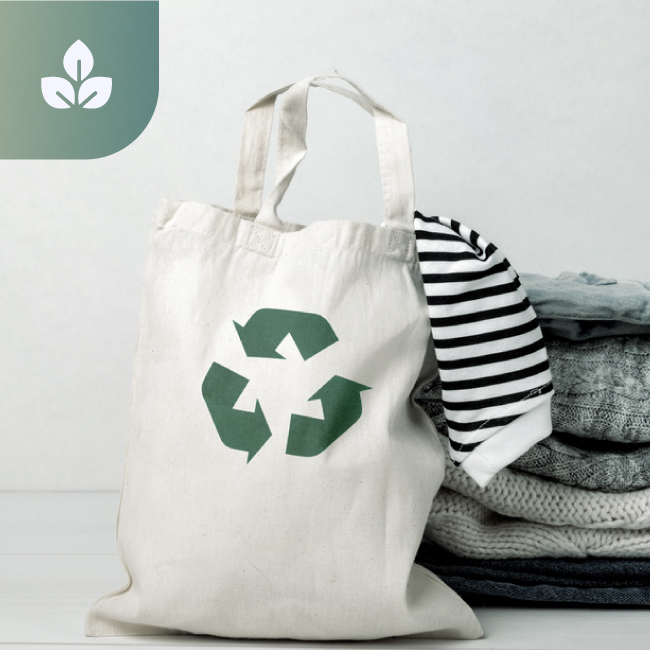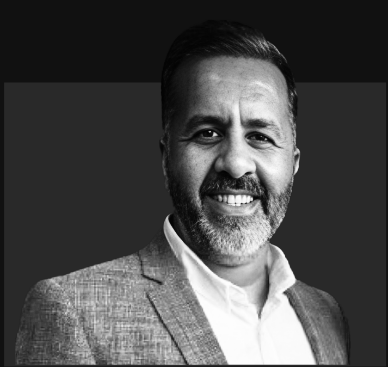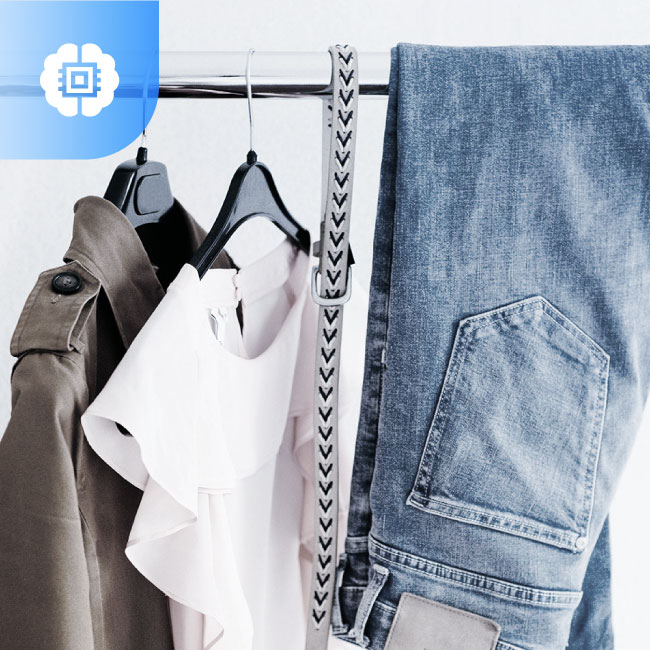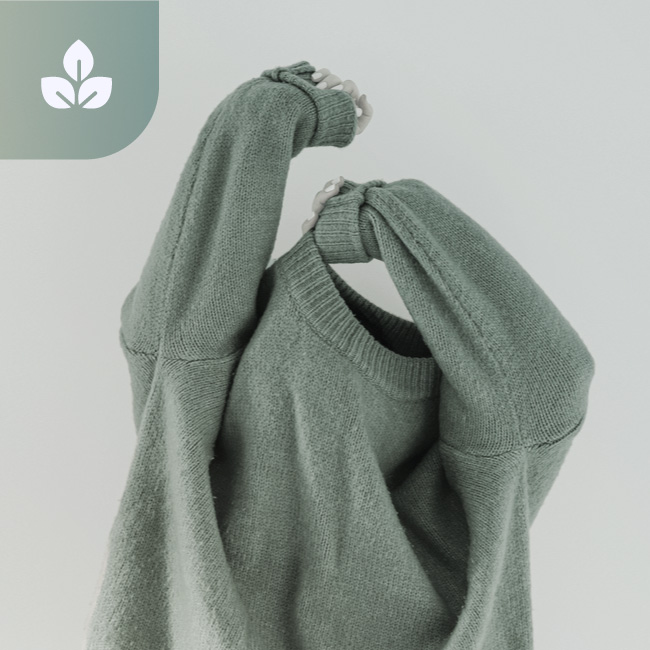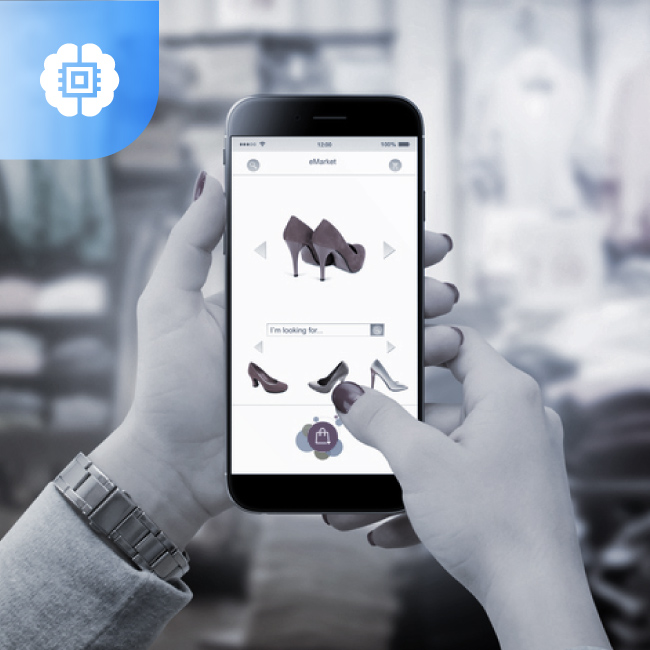
A Glimpse into the Middle East’s Digital Transformation
About this Podcast:
Our guest today is Federica Gioia, Founder and eCommerce Strategist, TechLab Cmerce. With nearly a decade of experience behind her, lending her expertise to brands like Tommy Hilfiger & Karl Lagerfeld in the field of eCommerce, Federica enters the consulting space in the Middle East. In the episode, she dives into where the region is heading in its digital transformation journey and much more.
Episode Transcript:
Hello and welcome to an all new episode of the retail podcast. I'm your host, Krithika Anand, and I have with me Shradha, Associate Director product Marketing at Vue.ai. Our guest today is Federica, founder and e-commerce strategist at Tech Lab Cmerce. With nearly a decade of experience behind her, lending her expertise to brands like Tommy Hilfiger and Karl Lagerfeld in the field of e-commerce, Federica enters the consulting space in the Middle East. Welcome to the Retail podcast by Vue.ai,Federica. It's great having you here with us today.
Federica GioiaHello. Thank you.
Krithika AnandThank you for joining us. I think we should jump right in. Why don't you begin by telling us a little bit about your journey, how your journey started from sales support to site merchandising and now founding and running techlab commerce. Take us through how your career has evolved over the years.
Federica GioiaYeah, well, the experience, the full journey. I would say it started back in 2012, I would say right after my studies where I completed my studies in Italy and I was already a tech savvy since the beginning and as a first experience indeed, I started into sales. I was into the luxury and jewelry industry and yeah, keeping in contact with the technology that was rising at that time was just very curious and wanted more. So I started to explore also other fields and even other industries within the same topic that included technology. And since then I basically started to travel more. So I ended up to us and then back to Europe, where I finally started my career into e-commerce as it was the field that at that time already was marrying a, you know, a different environment, but also very dynamic and inclusive of different type of technology. And Amsterdam was the the the nest, I would say, for me and my career development and knowledge with within ecommerce.
Krithika AnandRight Globetrotter, I must say..
Federica GioiaYes, definitely. Definitely. I definitely was born with a luggage in hand. Always ready for what's next. New challenges and new experiences. Absolutely. And this is also the nature of technology, right? Always in movements, always changing, always updating itself and dynamic with the with the market and with the needs of customers and users.
Krithika AnandAbsolutely. That sounds interesting. Federica, your entire journey seems like.
ShradhaUh, seems something that has been very fascinating from start. You have also spent a lot of years working with some of the biggest names like retail globally. What would you say inspired or urged you to shift your focus to the Middle East and enter the consulting space here?
Federica GioiaWell, first of all, the indeed, the the greatness of technology is indeed that it can include everybody. Right? It's reachable for any part of the world. And last year, one year and a half after this big experiences in the big brands, I started to think about what if I can use my knowledge to help, you know, market that needs to develop this this industry and these topics. And I was already traveling to the Middle East quite a lot to explore. And absolutely the Middle East is a perfect market for this because it's a new market, very young and is developing very fast as well. So it has big, big, big opportunities for growth both on both sides. For a expert point of view, but also for the business that businesses actually local businesses that needs some experts as well into into the e-commerce. Indeed now that we're talking about this industry. So also I would say that this is very important to to tell because it's in the end, the final trigger for me to make the decision is that this region, the Middle East region, has been experiencing a very rapid growth into e-commerce and with a projected market value of over $50 billion by 2025. So it's coming. And this moment is the moment where the boost and the push needs to happen. And I'm very excited to to be here and help businesses with strategies and growth.
ShradhaAnd that is so true. The market really is booming in this region. In your time here, what have you observed about the retail space? Have you seen anything unique in terms of the strengths or opportunities that this region has that you might not have seen before?
Federica GioiaWell, um. On this note of the young industry, this is, I guess, the first strength and opportunity, right? In part because when you have a young industry, you have the space to test, to challenge, to do, to be creative, to make something new. There is this space that for businesses to be very successful and effective in their in their strategy, you either be the first, the best or the different. And here in this region, all of this is possible because because of the market is very young, is still new, and you have very big like opportunity to to to do to go crazy, to scale the limits. Right. And therefore, this is a very big, big, big strength. Another would say that historically, um, is the best moment for this market to take the best out of technology because in this moment versus ten, 15, 20 years ago, you didn't have this technology, right? It's already very complex and they can help you to really develop since the beginning, a very targeted strategy. So the fact that they they have this possibility to use the best technology already, it's a very big strength and opportunities since moment one as a startup already.
Federica GioiaUm, also this is a market that is very sensitive in terms of mobile and social interaction. So the high demand on online shopping and especially for mobile is one big strength here. Um, the engagement that they have on the social channel and via the mobile is absolutely amazing. It's super big. And I would say the last one that as a Western person I saw it right away. They are so good at after purchase experience so can ensure you that in the Western countries it's very common to have like the best experience on sites. Maybe the app on mobile is super technologic, you know, with all the AI and softwares and everything. But then the after purchase is very, very complicated here. It's just amazing. You have your order delivered in two hours and if you're not happy, the return is even faster and everything is so comfortable at the door of your apartment. So this is one of, I would say, the biggest strength this market offers and needs to actually enhance it even more because indeed, like the the customization of the journey completely since like from the digital channel until the purchase can be like seriously huge.
Krithika AnandRight. Those are some interesting points here. And I think it all ties back to a good customer experience, right?
Federica GioiaYes. I mean, nowadays experience is greater than the product itself. People are not looking for product, especially if, like in my case, that I've always worked in fashion. Fashion is not a need. It's a want. Right. So at that point, what makes the difference for a brand is exactly the the experience itself. So going back to the first the first the best the difference in this case in this industry, particularly what makes you successful or more effective in your communication and and in the end on your product is indeed the different communication and experience and approach to your customers.
Krithika AnandRight. Absolutely. Now that we've spoken about the strengths and opportunities, I think we must, you know, tap a little bit into the challenges that you might have faced right. When you're stepping into a new geo a new market, you're bound to be faced with a lot of differences and challenges. Specifically, what are the significant differences when compared to the retail in Europe that you see in the Middle East region?
Federica GioiaYeah, I would say that the easiest and fastest thing that comes to my mind is the communication factor. So of course for a business to be successful in terms of revenue and reach and scale, um, there is one word that needs to be integrated right into the business and is globalization. So the more global your communication and your product is, the more successful your your business and more chances to grow you have, right? So I would say that the first challenge is indeed the communication. You have a complete different language, which is Arabic already. It's the first step, I would say, and also the different culture, the approach to the online shopping. So it's it's very different because culturally it's a region that is more used to offline experience, go to the store, you know, and therefore also the digital experience in general, I would say that came became serious with the pandemic, right? So they need a little bit more time and space to get better into the full digital experience. The communication, I would say, is the first challenge because of course it makes it more challenging to align with what is the global experience. And then I would say maybe going to like keeping the the the topic on the digital experience. It's also what is different like the the payment options and the conversational touch point with with the customers as well. But this I would say that, yes, our challenges and difficulties for sure, but looking at how fast is growing this market and the industry itself of e-commerce, I'm very confident that this will be solved and even make it better as soon as possible. Absolutely.
ShradhaThat is so insightful. So communication and how the culture approaches online shopping must really be shaped the industry in a very different way in the Middle East. With that in mind, what would you say could be some of the best practices that retailers can adopt?
Federica GioiaUm, the first best practice is data, data, data, data. This is something that would never be tired to say and repeat. The more data you have, the more you know how to make decision informed decision, targeted decision and have like a very insight into the future how to go next. The more you know how to communicate with your audience and the more you know about your audience itself, the better it's going to be. Right? The strategy is going to be a very detailed and with higher chance to be successful. Um, and this is something that probably also is one of the first challenge as well that I saw into the online businesses in general, not only in e-commerce. Um, and another best practice that I would always suggest is there is this very common misconception, especially in like within um, small businesses or scale up, um, that of course they need technology because digital is technology and technology enables everything in terms of experience, digital experience. Um, so there's this misconception that the moment you integrate a new software, a new platform, a new. I into the business. It's gonna work just because it's a technology.
Federica GioiaSo I would suggest not do not stop at the integration stage only. So once it's integrated in your business, that's the moment where you want to focus on technology. And I need a constant work. People that are dedicated to it, that are reading the data that they are always translating and adjusting to what is happening with the customer and what is happening in the business, what is happening on the website and aligning also with the communication you have outside the business. Another best practice is, of course, mobile first. We know that the majority of the traffic comes from mobile devices. We are talking over 80% in some businesses, especially e-commerce. And yet there is the mobile device has the highest abandonment cart rate that is like around 78%. So this tells a lot, right? It means that the mobile experience needs to be needs to have more attention than other devices in order to be more like faster, easier, more intuitive, and in the end, like seamless and effective for for your users. Absolutely. These are for sure the best practices for any digital business and especially for ecommerce.
ShradhaThat is so true. I think even in our conversations with retailers that view high quality data, both product and customer mindful technology, adoption and optimizing the mobile channel like you mentioned, come up as very big themes of discussion and a lot of retailers end up looking at and technology to solve these.
Federica GioiaYes. And also one thing that it's very important to keep in mind for any online business is the. You always have, like versus other kind of businesses offline or other industries. You always have fresh data. And this is treasure. This is gold because it means that you can always be not only updated on what is happening, but you can pay ahead with all this fresh data that you daily have, right? If only you check and you collect it and you translate it, you have your dashboards, you can read it and you can act upon like right away.
Krithika AnandRight? Absolutely. Those are some interesting points there, Fredricka. Now, I want to quickly pivot specifically into the area of digital transformation for you that is so strong in offline retail. Can you tell us some insights into the e-commerce and online market? What share of the market does e-commerce have a strong hold on?
Federica GioiaUm, as far as I see, you have two biggest industry that there are very, very, very strong in the Middle East is food and beverages. First of all and fashion and was very impressed how much fashion has is the second industry and market that is very, very, very, very strong. And therefore, also this was one of the biggest trigger for me as a fashion e-commerce expert. Um, but I would say that is also even though it's the second biggest industry in the in the region is also the hardest one and for several reasons, starting from the product, that is not a need starting for from the fact that you have so much options that you have really a lot of several um, inputs and outputs in terms of technology, in terms of devices, in terms of approach, in terms of communication and everything. But I say, I have to say that the fact that the region itself is so strong into the fashion, it means that there is a strong demand. And what I saw especially is that, well, we know that the region, like the majority of the products that come into the region, is from outside. It's imported into the region. Right. And this means a lot. It means that there is demand for a global alignment with not only the product itself, but with the options, with what is there for the customers.
Federica GioiaRight. And so I saw that, um, as an insight on the region. Um, the first step is this one is like the scale and the reach. So make the proposition more global because not only you have a lot of experts in the region and probably is also the main reason, but futurists here, technology is here. And if it's not physically here, it's digital is here. So at one point people are going to know that there is something more, right? And therefore, the sooner you align and you accept this and you provide more options, the better for your business. Of course, um, payment flexibility here in this region is. I see that the payment features are increasing a lot. So the options of how many payments, how many cards, how many different kind of payments, because you also have the cash on delivery here is working a lot. Um, but hopefully it's going to be digital like fully digitalized soon because in the end, if we know that mobile is going to, it is already the most used device. Apple Pay or you know, one click is always better because it's faster and people are not going to think too much.
Federica GioiaYou know, it's like, okay, it's easy, let's buy it and let's receive my order. It's like this. And once again, the experience is greater than the product. The most men, consumers discover new brands on their favorite social media sites, for example. So like 70% of the of the customers they discovered, for example, brands on Facebook or on Instagram. Here, Instagram is like crazy. Tiktok again. And that's the reason because culturally, they really love the engagement, the personal engagement. And therefore, let's let's use this on on our favor as a as a brand and as a business. Right? I have this example like the most favorite, like a beauty blogger here in the UAE is Huda, Right, with her brand, Huda Beauty. How did she became so global Instagram. She started on Instagram on her Instagram account. And this worked perfectly for her because she was engaging with her audience. And now look at her is a global brand, right? Um, and I would say that like I would really use as a local business, I would really use the fact that, um, the, the segment is really, really growing so fast that technology is really helping it. And um, I would say that the scalability is the only thing that really needs to be boosted now.
ShradhaThose are some really interesting notes. Have you also had any observations on how the retail industry adopts and technology? Have you noted possibly any patterns in how adoption rates for the teams are moving or growing?
Federica GioiaYeah, well, the region itself is very open to technology. And I starting from all these events and conferences that they create, they organize. Um, it's very clear that they're not only opening to adopting, but they also want to involve as many businesses as possible in order for them to really grow and scale their businesses, right? So absolutely open with the conversations. Um, however, for example, because the industry is still very young, um, for now we're still in the platform stage more than the AI. So the pattern I see with the majority of the businesses is what is the right platform for me, what makes the right platform for me. And also the, the main, I would say names that recur in my ears, especially for ecommerce, are like Shopify and WooCommerce. And it's I understand why because of course these platforms are very easy and intuitive to use. Um, they are, they facilitate a lot. Any kind of integration in the future for plugins or any other AI. Um, so yeah, they are definitely now into the platform adoption and I hope that the following stages into the AI, the AI softwares are coming very soon as well.
Krithika AnandMhm. Yeah, absolutely. And we see the growing demand for AI across the globe and for the Middle East specifically. Right. What are some of the use cases that businesses are keen on strengthening on?
Federica GioiaWell, I think that the very first example that comes to my mind is the giving moment movement. So this brand really found the like the key, right, for expansion. So if you go to their website, there is this very fresh vibe and fresh emotion. Okay? It's sport clothing. So you see it very dynamic. But in terms of also technology, they are I see that they are going with the with the moment. You know, they use like this. I know that they use Shopify, but also whenever you navigate through the website, they are getting into the personalization of the journey. So suggesting other products complete the look or you may also like these are product recommendations that makes people more involved into their browsing, into their shopping experience and can also motivate them to either buy more or to find something, you know, to, I don't know, match with what we what they already chosen or discover even more, because in the end it's also about that. And if we want to go to some bigger examples, I would definitely use Unas. This is another fashion e-commerce, um, with multiple brands. Um, the position is into the luxury fashion and products and also on their e-commerce you, you can see the the work with the technology adjusting with the demand of their customers and providing a personalized journey that is always, always fostering not only shopping and more orders and growth in revenue, but also loyalty. Right. If I have a best the best experience while I'm shopping for sure, not only I'm going to come back and I'm going to buy more, but I'm also suggesting it to my friends and people that I know that have around.
Krithika AnandAbsolutely, Fredricka. Absolutely. And these are some really interesting points. Those were some incredible points, Fredricka. With that, we've reached the end of this episode of the Retail Podcast by Vue.ai. Thank you so much for joining us today. It was a pleasure having you here, having you share all these incredible insights on optimizing customer journeys, the importance of customer experience and the rise of mobile applications in the Middle East and so much more. We'll be back with an all new episode of the retail podcast. But for now, it's me, Krithika Anand signing off.
Federica GioiaThank you very much for having me. It was very insightful also for me. And yeah, hope to, you know, engage even more in the future and yeah, that's it. Thank you for having me.
Krithika AnandWe'll be back with an all new episode of the retail podcast. Bye now. It's me signing off Krithika Anand.
Meet your speakers:

Federica Gioia
Founder and eCommerce Strategist, TechLab Cmerce
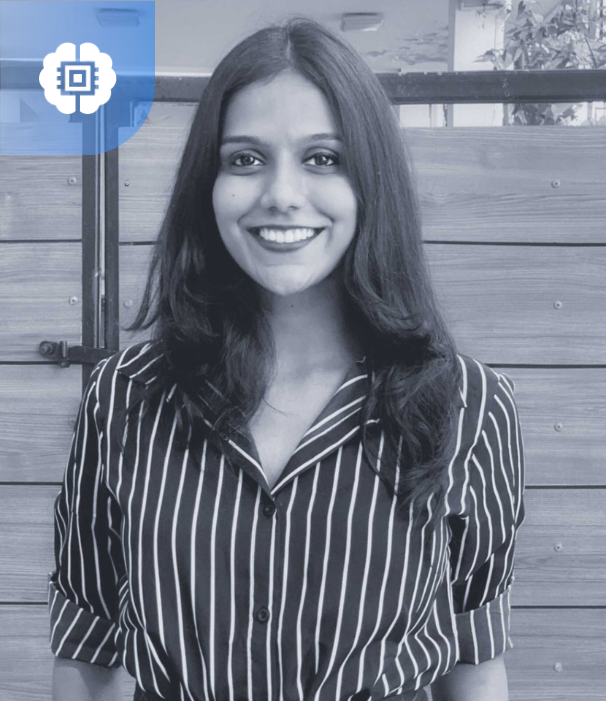
Shradha R
Associate Director, Vue.ai
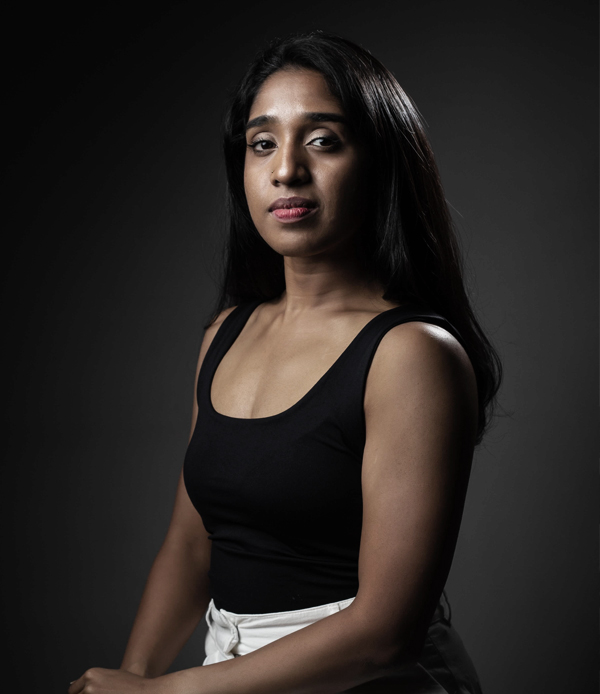
Krithika Anand
Customer Marketing, Vue.ai
